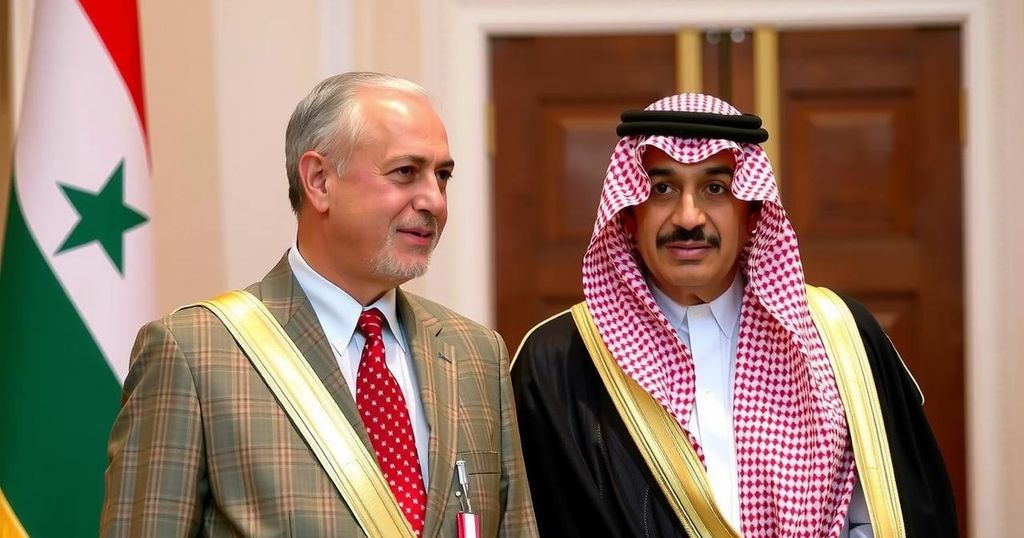Syria’s Foreign Minister Visited Saudi Arabia, Signaling New Diplomatic Relations

Syria’s Foreign Minister Asaad Al Shibani visited Saudi Arabia on Wednesday, marking the first official trip for the new Syrian government following the recent overthrow of Bashar Al Assad. The visit aims to enhance Syrian-Saudi relations, which have been historically strained but are now set for potential collaboration amidst regional support for Syria’s new leadership.
On Wednesday, Syria’s Foreign Minister Asaad Al Shibani made his inaugural visit to Saudi Arabia, marking a significant moment for the newly installed Syrian government following the recent overthrow of former President Bashar Al Assad. Accompanied by the Minister of Defence Murhaf Abu Qasra and the Head of the General Intelligence Service Anas Khattab, Mr. Al Shibani expressed aspirations of rekindling and enhancing Syrian-Saudi relations, emphasizing shared historical ties. This visit occurs in a context where regional and Western countries have begun to engage with Syria’s new administration led by Ahmad Al Shara of Hayat Tahrir Al Sham, which played a pivotal role in the removal of Mr. Al Assad.
The backdrop to this diplomatic development is rooted in over 13 years of civil war in Syria, which was instigated by a harsh suppression of pro-democracy protests in 2011. As the conflict unfolded, regional dynamics changed significantly. Saudi Arabia, along with other Arab nations, severed ties with Mr. Al Assad’s regime in 2012 due to its oppressive policies and actions. However, following the restoration of ties last year, Saudi Arabia’s role has evolved to one that supports Syria’s reintegration into the Arab League, amidst ongoing concerns about illicit drug trafficking originating from Syria.
The visit of Syria’s Foreign Minister to Saudi Arabia signifies a potential new chapter in the diplomatic relations between the two nations. With a shared interest in stabilizing Syria and addressing economic reconstruction, Saudi Arabia appears poised to play a pivotal role in Syria’s future. However, the challenges remain significant, particularly concerning drug exports and ongoing security concerns, necessitating ongoing dialogue and collaboration.
Original Source: www.thenationalnews.com








